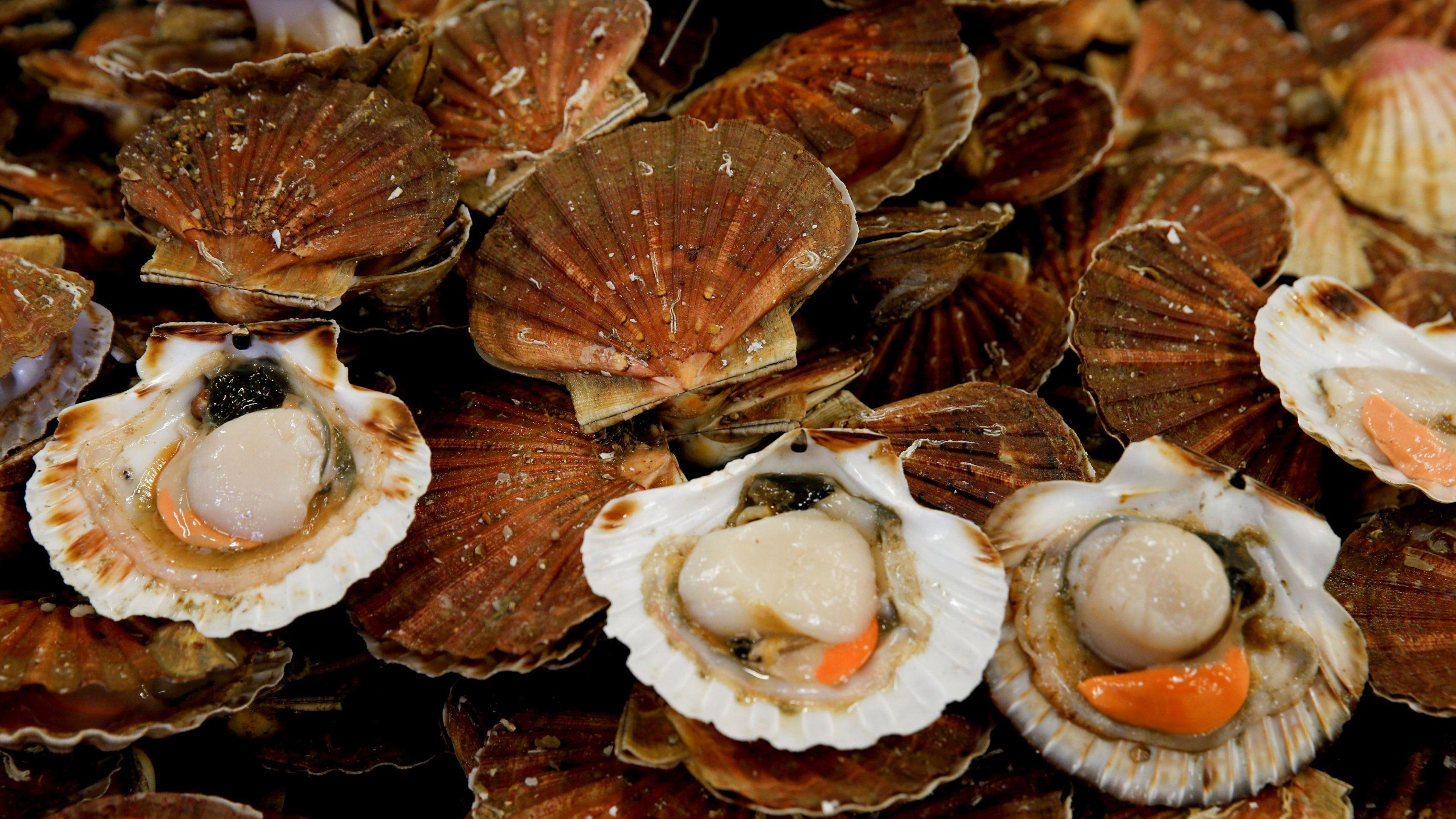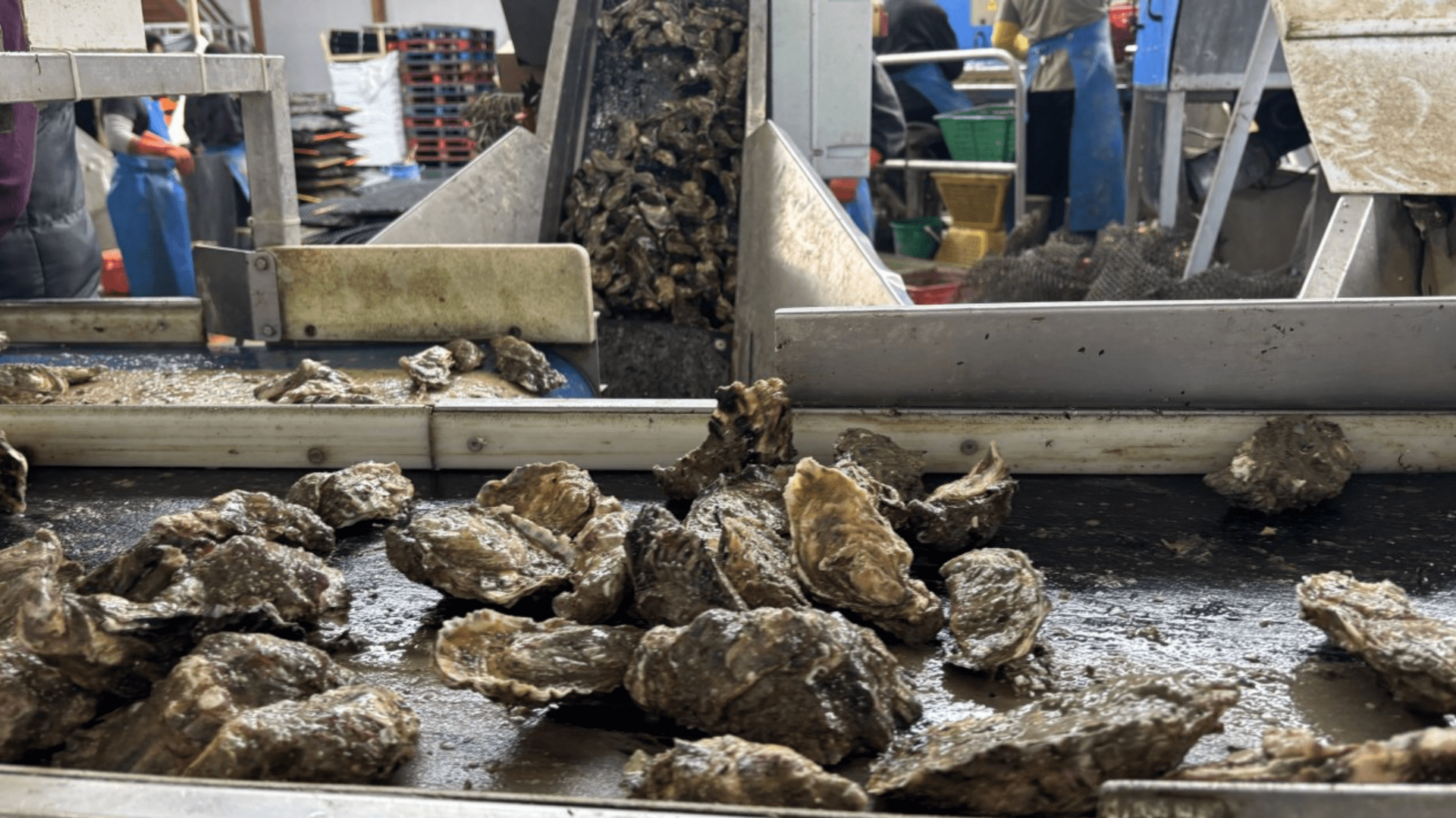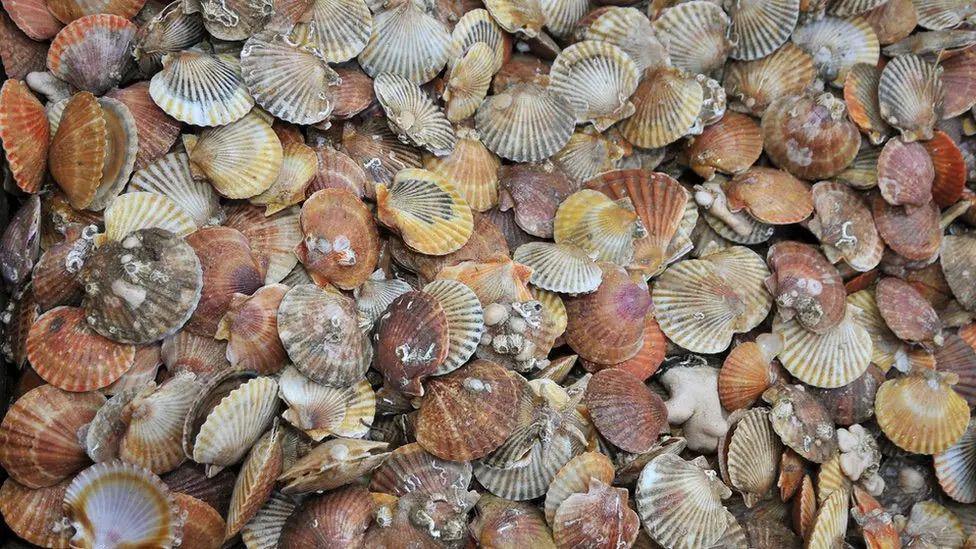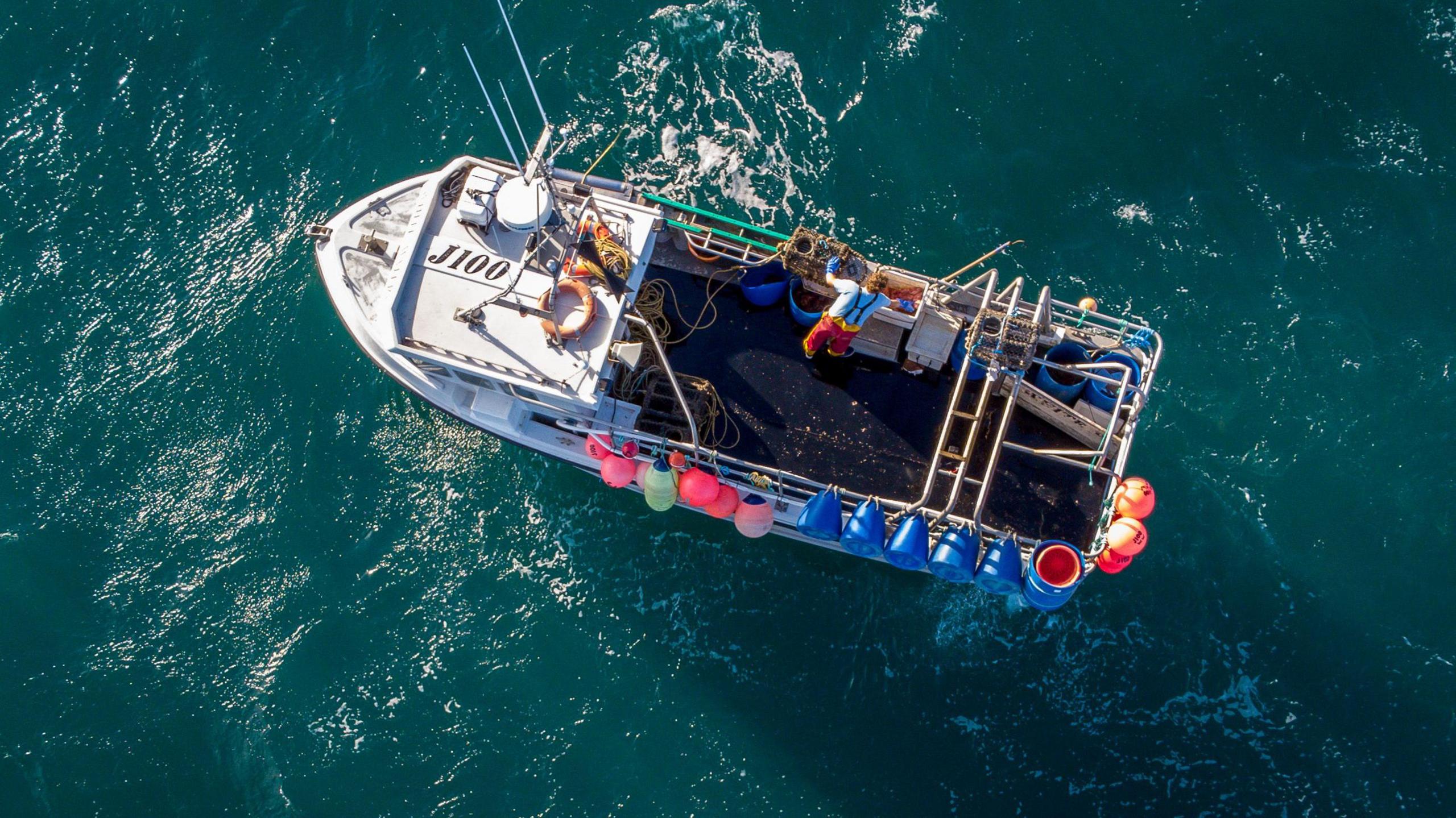French rules target ice used in seafood exports

Packaging for scallops being taken to France are causing issues, officials say
- Published
A seafood supplier has said it is becoming "very difficult" to export to France due to new import requirements - including on how ice is made.
Nathalie Porritt, manager of Aqua-mar fisheries, told the BBC they could no longer use Jersey tap water to make the ice due to the paperwork required and she said some shipments of scallops in summer had to be destroyed because they did not meet temperature requirements.
It comes after Environment Minister Steve Luce told a hearing last week it was becoming increasingly difficult to meet requirements set by the French authorities to accept shellfish.
The claims were strongly refuted by St Malo's border control which said they were "a pack of lies".
It said: "No ice water analysis was requested by the inspection service in Saint Malo, and no scallops were refused or destroyed in Saint Malo."
Ms Porritt said they could no longer use mains water straight from the tap as it required extra testing on top of Jersey Water's regular quality tests to meet new French credentials.
"It's very, very difficult," she said.
Luce also made reference to the water issue in last week's hearing.
The government's marine science team said the French Border Control Post had requested deliveries to not use ice in the packing and export of live scallops due to the shellfish filtering water "to feed in the wild".
"If the ice melts, the melt water could in theory be absorbed by the scallops," it said.
"Regardless of the bacteriological quality of the ice it should not be used in the transport of bivalve molluscs."
Last month a four-tonne oyster haul was destroyed at the French border because of a "typo" in a reference number.
Stringent checks
To try to maintain the required cold temperature, Ms Porritt said they now had to line the bottom of the scallop trays with sealed ice packs, put the produce on top of them and add more packs on top before sealing the boxes.
"The checks are very stringent in St Malo," she said.
"If anything doesn't meet the required temperatures as set out then unfortunately the loads are destroyed at the expense of us."
Ms Porritt said it was expensive as some of its consignments had been rejected over summer.
She said in the summer they used the ferry to export their produce into France four times a week, but it was now reduced to once a week in the winter.
"It's much more limited, as are the ferry sailing schedules into France," she said.
Jersey's environment authority said shellfish merchants had also told officers the French required the water used to make ice to be from an approved source.
Luce was approached for further comment.
Follow BBC Jersey on X, external and Facebook, external. Send your story ideas to channel.islands@bbc.co.uk, external.
Related topics
- Published25 September

- Published29 August

- Published2 August

- Published27 November 2023
